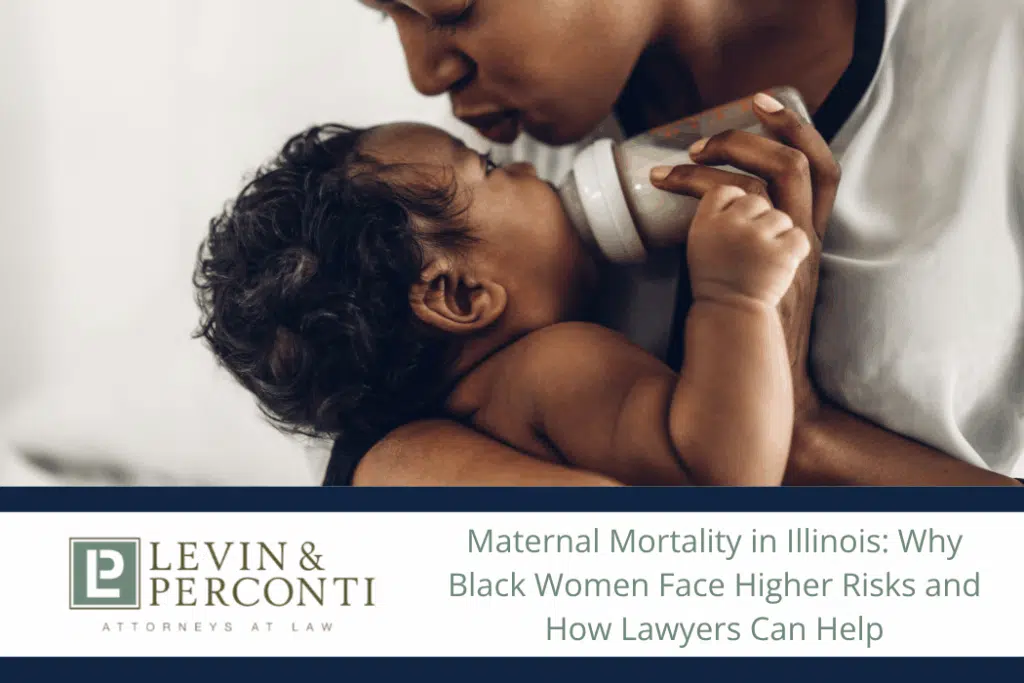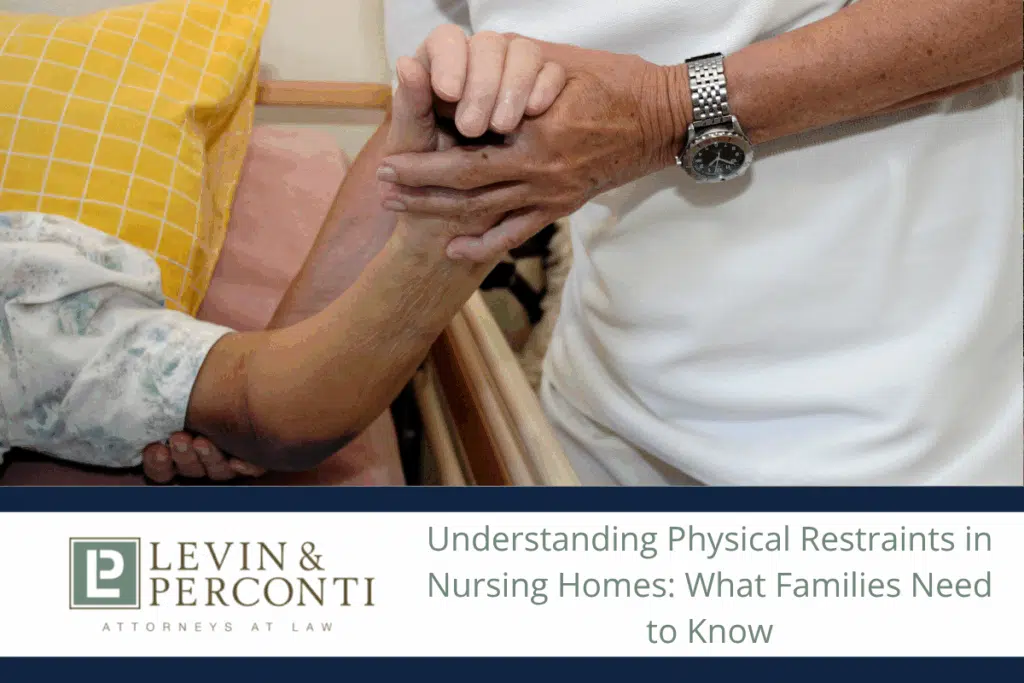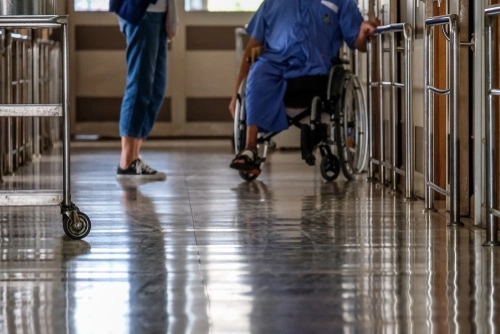Chicago Failure-to-Diagnose Lawyer

A physician who fails to accurately diagnose a medical condition deprives the patient of an opportunity to receive the necessary treatment to relieve symptoms, heal the condition, or prevent the illness from escalating. For some patients, the results are tragic. A Chicago failure-to-diagnose attorney can help patients recover substantial compensation from negligent providers.
Home | Chicago Medical Malpractice Lawyer | Chicago Failure-to-Diagnose Lawyer
Quick Links
- Why Choose Levin & Perconti For Your Failure-To-Diagnose Lawsuit
- Our Notable Results In Failure-To-Diagnose Cases
- What Is Failure To Diagnose?
- Commonly Undiagnosed Conditions
- Why Do Doctors Make So Many Diagnostic Errors?
- The Effects Of A Failure To Diagnose
- How To Know If You Have A Case For Failure To Diagnose
- Damages Available In A Failure-To-Diagnose Lawsuit
- How Long Do I Have To File A Lawsuit For A Failure To Diagnose In Illinois?
- Contact Our Chicago Failure-To-Diagnose Attorneys Today
- Past Client Testimonials
Every year in the United States, an estimated 12 million Americans suffer a diagnostic error in a primary care setting, according to a Johns Hopkins School of Medicine study.
Approximately 33 percent of these errors result in severe injuries, permanent complications, or death. Misdiagnosis is the leading cause of pediatric malpractice lawsuits.
As many as 85 percent of diagnostic errors are caused by clinical misjudgment. Physicians who use poor judgment or otherwise neglect their duty to correctly diagnose according to a reasonable standard of care may be liable for harm that ensues. The Chicago medical malpractice lawyers at Levin & Perconti can help.
Why Choose Levin & Perconti for Your Failure-To-Diagnose Lawsuit
Levin & Perconti is a nationally recognized law firm of award-winning attorneys who have experience winning significant verdicts and settlements for medical malpractice victims.
Since our establishment in 1992, we have recovered $1 billion dollars on behalf of clients harmed by the negligence of corporations and health care providers putting profits over people.
Our founders, Steven Levin and John Perconti, are Chicago-area natives passionate about stopping poor medical care by holding negligent health care providers accountable.
When you choose Levin & Perconti, you receive the highest caliber representation from experienced trial attorneys with no up-front costs. We absorb the risks of pursuing your claim, advancing all associated costs until a successful resolution. You owe us nothing unless we win your case.

Our Notable Results in Failure-To-Diagnose Cases
We are proud to have consistently achieved such results as the following for our clients injured by diagnostic errors:
- $14 million record-high verdict against a doctor and hospital for ignoring abnormal chest X-ray results, which caused a substantial delay in the diagnosis of lung cancer
- $8.1 million verdict on behalf of a family whose mother died from lung cancer as a result of failure to diagnose
- $7.62 million verdict against a doctor who disregarded a mother’s complaints of postpartum bleeding, resulting in her death
- $5.35 million settlement against a hospital and staff on behalf of the family of an 18-year-old mother who tragically passed away one month after giving birth from postpartum cardiomyopathy
- $2.3 million settlement against a laboratory in the death of a 35-year-old mother of three from cervical cancer after a laboratory failed to properly read her Pap smears
- $1.8 million settlement for the preventable death of a mother after a hospital and doctor failed to diagnose an acute postpartum sickle cell crisis
- $1 million settlement against an HMO doctor for the death of a patient with an undiagnosed failing artificial heart valve
What is failure to diagnose?
Failure to diagnose is a diagnostic error that prevents patients from getting the care they need, often resulting in irreversible damage or death. Failure to diagnose can take the form of delayed diagnosis, misdiagnosis, or no diagnosis at all. A misdiagnosis allows the real condition to remain untreated.

Commonly Undiagnosed Conditions
The following illnesses are the 10 most common conditions that are misdiagnosed, diagnosed late, or not diagnosed at all, according to a qualitative study published by the Journal of the American Medical Association:
- Colorectal cancer
- Lung cancer
- Breast cancer
- Heart attack
- Prostate cancer
- Stroke
- Sepsis
- Bladder cancer
- Pulmonary embolism
- Brain hemorrhage
While these are the most common, they are far from the only underdiagnosed conditions. Misdiagnosis and underdiagnosis are rampant in the areas of mental health and pediatrics.
Mental Health Conditions
Psychology Today reports that more than 40 percent of mental health patients are misdiagnosed. Patients often receive a quick diagnosis of common disorders without a thorough history being taken.
As a result, patients may be diagnosed with such conditions as ADHD, bipolar disorder, or autism when they are suffering from less common conditions. This may occur due to:
- Psychiatric negligence
- Diagnosis by a primary care physician who is not a mental health specialist
- Diagnosis based on one major symptom without a comprehensive analysis
Mental health conditions cannot simply be diagnosed with a blood test. Instead, they require a systematic review of the patient’s symptoms as well as time spent with the patient to learn about their history and observe their condition. Reaching the correct diagnosis may require multiple in-person sessions.
Children’s Conditions
According to the Child Mind Institute, ADHD is the most common misdiagnosis in children. While many physicians quickly diagnose children with ADHD when they present difficulty concentrating or hyperactivity, these symptoms could indicate the following conditions, which often are not considered:
- Obsessive-compulsive disorder
- Post-traumatic stress disorder
- Learning disorders
- Autism
- Anxiety
- Depression
- Hypothyroidism
Physical illnesses in children are frequently misdiagnosed because practitioners regard children as miniature adults rather than considering that the symptoms of illnesses often differ in adults with similar conditions. The most common life-threatening illnesses often diagnosed too late include:
These misdiagnoses occur because doctors often dismiss children’s pain complaints and other symptoms as less serious and more common. Health care providers err by making assumptions and failing to take a full patient history, listen to parent concerns, or consider less apparent possibilities.
Why do doctors make so many diagnostic errors?
Diagnostic errors can occur for multiple reasons, which almost always stem from an error in judgment by a health care provider.
Rushed Diagnosis
Physicians often serve a high volume of patients and may not spend sufficient time with each one to assess symptoms accurately and perform the necessary testing. In their rush, they may not take the time to listen to their patients or provide a thorough analysis that would ensure a correct diagnosis.
Miscommunication Between Providers
Miscommunications in the medical field can lead to misdiagnosis. This can occur in the following circumstances:
- A referring physician fails to provide complete patient information to a specialist
- A nurse or other provider fails to document patient complaints or changes in condition
- A doctor fails to write orders discussed with the patient
- A doctor’s handwriting is misread or a transcription tape is incorrectly transcribed
Personal Biases
Although a health-care provider should be objective, conscious and unconscious biases, unfortunately, can influence a physician’s diagnostic decisions.
Cognitive Bias
According to a study by BMC Emergency Medicine, cognitive biases are common among doctors. A cognitive bias is a personality trait that affects how a physician processes patient information. The study found that the following types of cognitive biases most commonly resulted in diagnostic errors:
- Overconfidence: placing too much confidence in their judgments or another physician’s
- Confirmation bias: discounting information that contradicts the physician’s initial hypothesis
- Availability bias: making care decisions based on ideas that come to mind quickly—a bias often based on previous experiences
- Anchoring bias: refusal to consider ideas other than the initial thought that came to mind, regardless of new information
These biases may come across as a physician being stuck on an idea and unwilling to consider patient concerns.
Gender Stereotypes
Gender bias most often works against women and other marginalized groups, according to Medical News Today. The health care field has long been male-dominated, resulting in an underrepresentation of women in clinical studies. As a result, health problems in women may go unrecognized.
Pain Management
Doctors are more likely to dismiss pain complaints by women, assuming women are oversensitive. They are also more likely to diagnose a psychological cause for pain in women than in men. As a result, women are more likely than men to have serious underlying conditions that remain undiagnosed.
Bleeding Disorders
Women can also be the victim of false beliefs about bleeding. Abnormal bleeding may be labeled gynecological when other disorders are present.
For example, some doctors falsely believe that only men can have hemophilia, resulting in women receiving a delayed diagnosis or not being diagnosed at all. This can result in fatal hemorrhaging.
Other bleeding disorders that commonly go undiagnosed in women include:
- Platelet function disorders
- Gastrointestinal bleeding
- Von Willebrand disease
Autoimmune Disorders
According to one survey, as many as 62 percent of autoimmune disease sufferers are labeled “chronic complainers” by their physicians. This disproportionately impacts women because approximately 75 percent of autoimmune disorder patients are female.
However, men may be diagnosed more reliably than women. Though 90 percent of lupus sufferers are women, men are diagnosed more quickly after they present symptoms.
Mental Health Disorders
Gender stereotypes are also rampant in the mental health field, where women are more likely to receive a diagnosis of depression than men. Women are also more likely to receive psychotropic drugs.
The disproportionate diagnosis of depression in women points to the possibility that men with depression are not properly diagnosed. It could also mean that women are being misdiagnosed with depression while other serious conditions go undiagnosed.
Heart Disease
Men and women experience different symptoms of heart disease or heart attacks, yet women’s symptoms are labeled as “atypical.” As a result, women with heart disease may not receive a timely diagnosis.
Heart attacks may also go unrecognized. One study found that female heart attack victims are more likely to die when they have a male doctor.
Racial or Ethnic Bias
The medical field is rife with racial bias, particularly against African Americans.
Pain Perceptions
One of the most devastating impacts of this stems from a stereotype that Black people can tolerate more pain than white people. This leads to the dismissal of pain complaints from Black men, women, and children and creates an inability to receive necessary pain medication.
Pain is an important diagnostic tool, and downplaying a patient’s pain can result in a missed diagnosis.
Stereotypes
False assumptions about African Americans can also lead to a misdiagnosis. The Society to Improve Diagnosis in Medicine reported a story of a Black man being misdiagnosed as having suffered a drug overdose when he was suffering a stroke.
He was unable to respond verbally but could muster the strength to request a pen, with which he wrote the correct diagnosis of “sickle cell stroke,” essentially saving his own life.
Mental Health Misdiagnosis in Women and Children of Color
Women of color experience a disproportionately high incidence of failure to diagnose in the mental health field. Stereotypes against Black women may cause a doctor to miss a case of depression and assume the patient is hyperirritable or an “angry Black woman,” according to Prism.
In many cases, women and children of color experience such overt prejudice as to have their mental health symptoms regarded as character flaws or criminal behavior.
Black children with attention deficit hyperactivity disorder (ADHD) are often forced to live without a diagnosis because some medical professionals associate these conditions with white children.
Inexperience
Younger, less-experienced doctors may be more likely to correctly diagnose in some cases because they are less prone to personal biases and have the most up-to-date training.
However, they lack the knowledge that only experience can provide. This creates a double-edged sword, as younger doctors may be more likely to correctly diagnose some conditions and more likely to miss others.

The Effects of a Failure To Diagnose
Misdiagnosis can seriously harm patients. A patient with a false diagnosis will likely be deprived of necessary treatment for the undiagnosed condition while receiving unnecessary treatment for the incorrectly diagnosed condition. This can lead to unnecessary medication, tests, and invasive procedures.
Pinnacle Care, a patient advocacy organization, reported in a white paper that 28 percent of 538 diagnostic errors were life-threatening or resulted in the patient’s death or permanent disability. It also reported that diagnostic errors account for approximately 10 percent of patient deaths and six to 17 percent of adverse hospital events.
The effects of a misdiagnosis may include:
- Receiving the incorrect medication
- Not receiving the necessary medication
- Progression of the undiagnosed condition
- Sudden death
- Unmanaged pain
- Brain damage
- Treatable cancer becoming terminal
- Stroke
- Heart attacks
- Extended suffering
How To Know if You Have a Case for Failure To Diagnose
A failure-to-diagnose claim may have merit if you have suffered severe health and financial effects due to any of the following health-care providers failing to diagnose a health condition:
- Doctors
- Nurse practitioners
- Physician’s assistants
- Chiropractors
- Nurse midwives
- Hospitals
- Nursing homes
To prevail in a failure-to-diagnose lawsuit, your attorney must prove that the health-care provider failed to provide the level of care expected of a reasonably prudent individual with similar qualifications, given the available information at the time of the missed diagnosis.
Damages Available in a Failure-To-Diagnose Lawsuit
The damages for which you qualify depend on the severity of your injuries and the short-term and long-term impacts your injuries have on your finances and quality of life.
Illinois law allows medical malpractice injury victims to recover economic and noneconomic damages but not punitive damages. Unlike many states, Illinois personal injury law imposes no limits on noneconomic damages.
Economic Damages
Economic damages are compensation for your verifiable financial losses, including:
- Medical expenses
- Ongoing medical costs
- Assistive devices
- Physical therapy
- Lost wages, both present and future
- Lost business opportunities
Noneconomic Damages
Noneconomic damages include compensation for:
- Pain
- Suffering
- Loss of bodily functions
- Loss of ability to enjoy life
- Loss of activities previously enjoyed
- Loss of society
- Loss of consortium (husbands and wives)
How long do I have to file a lawsuit for a failure to diagnose in Illinois?
The Illinois statute of limitations generally requires a medical malpractice lawsuit to be filed within two years of the date of the injury. If the injury was not discovered until later, the clock begins to run on the date of discovery, with a time limit of four years after the misconduct occurred.
The two-year statute of limitations does not mean you should wait to contact an attorney. Early involvement by an attorney allows them access to valuable information about your case that may not be available later, such as detailed witness recollections.
It also ensures your attorney has sufficient time to investigate your case, retain expert witnesses, and prepare the strongest case possible.
Contact Our Chicago Failure-To-Diagnose Attorneys Today
If you have suffered an injury due to a physician’s failure to diagnose your condition, you may be entitled to recover substantial compensation. Contact a Chicago failure-to-diagnose attorney or call us at (312) 332-2872 today to schedule a free case evaluation.
Past Client Testimonials
Don’t take our word for it. Hear from some of the medical malpractice victims we’ve helped:
Not only were they so professional but also so caring and thoughtful. It was very difficult going over the facts in our mother's case but they were so compassionate and understanding and allowed us to be with them every step of the way. We were able to sit in on the depositions and we were really able to see how hard they worked on our behalf.

During that time, my family and I suffered the loss of my mother. Mr. Levin and Mr. Perconti were more than just our lawyers. Words can’t really express our gratitude.

They were most patient and responded timely to many questions throughout the entire process. All demonstrated professionalism and extensive knowledge of case and state laws. Their in-depth investigative work uncovered details which were unknown to us and yet sadly confirmed our suspicions. We would recommend the Levin and Perconti Law firm and especially this team.

During that time, my family and I suffered the loss of my mother. Mr. Levin and Mr. Peconti were more than just our lawyers. Words can’t really express our gratitude. My family and I will always be grateful for the compassion that they showed us. I want to thank you for what you did for my family, and for always being there for us.

Margaret’s representation, guidance, and professionalism gave us the sense that we could put our trust in Levin & Perconti and the final outcome proved that to be true.

Legally Reviewed by

Bonamarte, IV
Read Bio
Since 2005, Michael Bonamarte IV has been a passionate advocate for victims of negligent conduct, corporate malfeasance, and medical malpractice. He has won numerous awards and recognitions, including Best Lawyers in America and Super Lawyers’ Rising Star. He has presented for the American Association for Justice, the AAJ Nursing Home Litigation Group, the John Marshall Law School, and numerous other legal associations. He regularly lectures at Chicago-area aging organizations about nursing home abuse. His writings have been published by the American Bar Association, the Chicago Daily Bulletin, and numerous other prestigious publications.
Related Pages
Notable Results
for failure to properly read pap smears, resulting in the misdiagnosis of cervical cancer and eventual death of a 35-year-old mother of three children.
for failing to biopsy a known breast tumor, resulting in the delay of diagnosis of breast cancer, causing death.
for failing to perform an annual pelvic exam, which resulted in the untimely diagnosis of ovarian cancer.
Related Blogs














